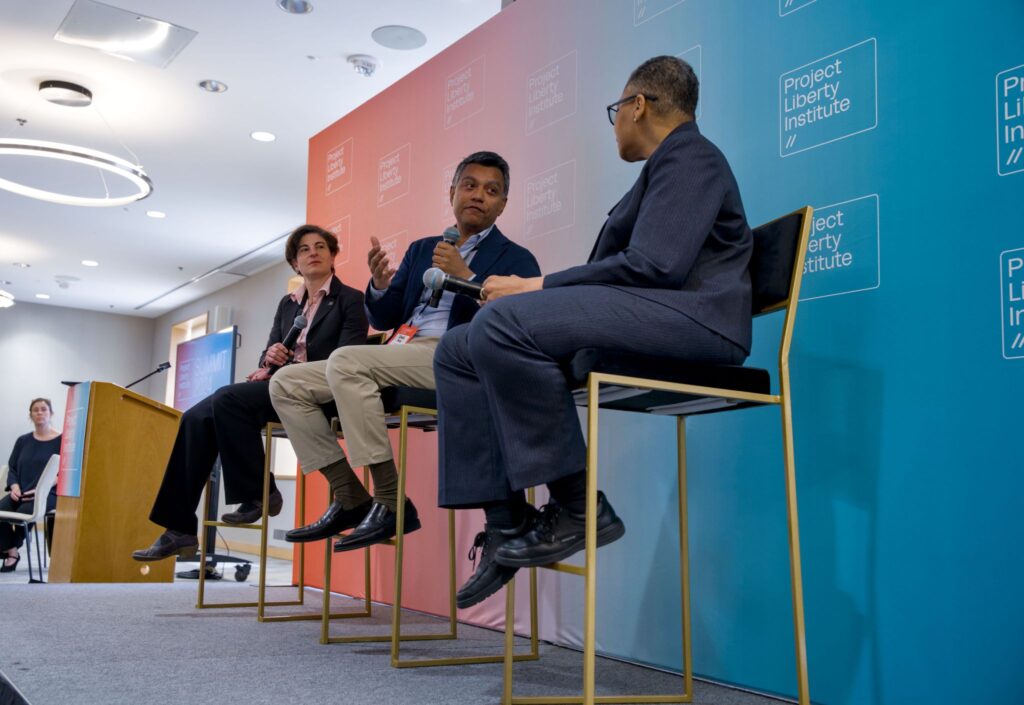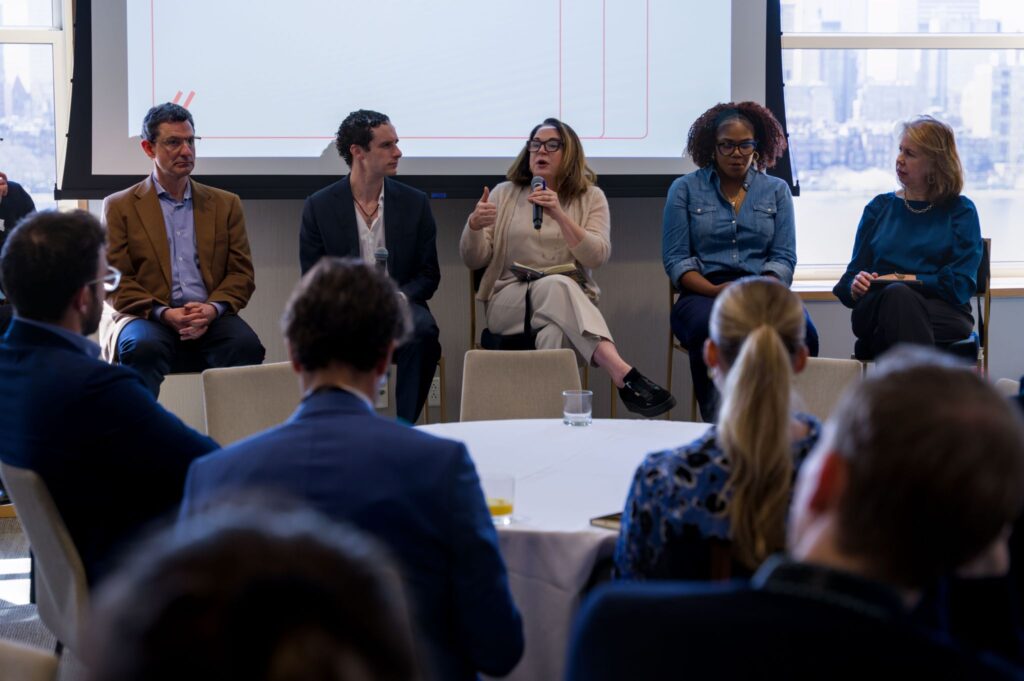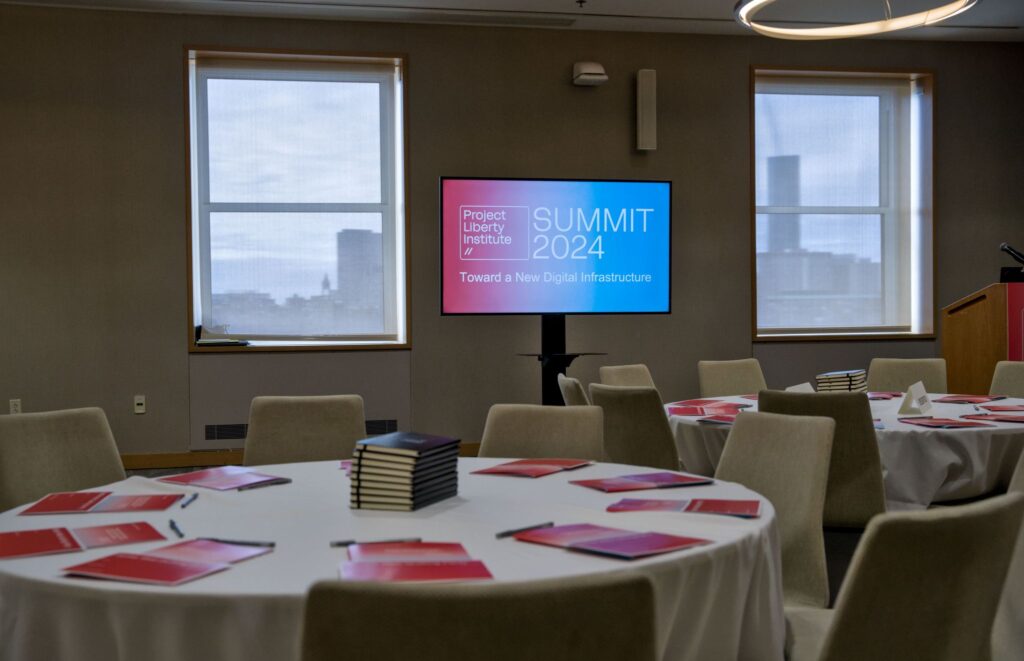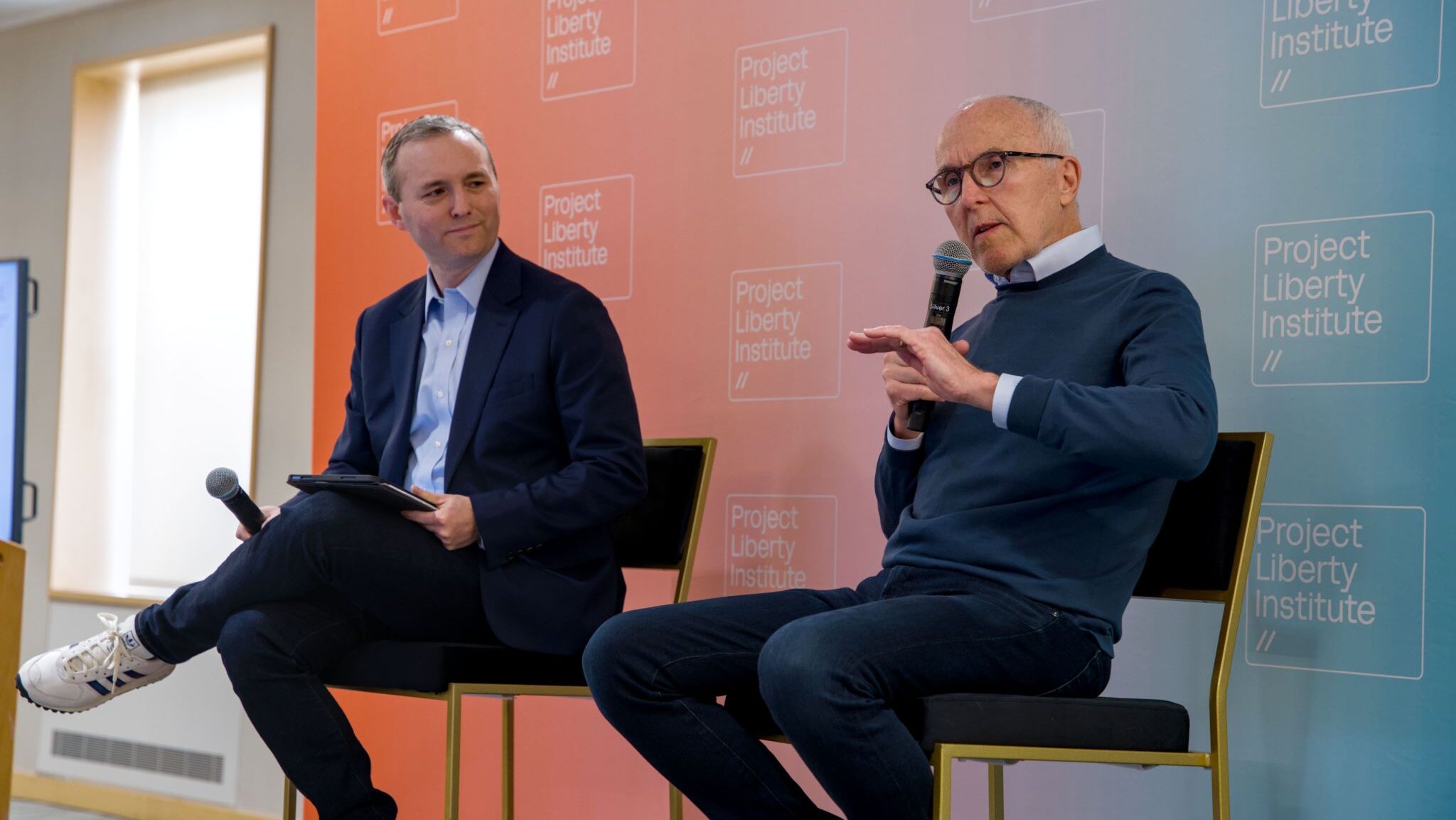Facilitated by MIT’s Center for Constructive Communication and Harvard University’s Berkman Klein Center, the event featured a multidisciplinary network of collaborators across Project Liberty Institute’s ecosystem for a series of roundtable discussions on how to ethically design, develop, and govern the internet of tomorrow
On April 18 and 19, Project Liberty Institute hosted its inaugural Summit, which convened more than 150 leaders across technology, policy, academia, civil society, business, and governance. The event was cohosted on the campuses of Harvard University and the Massachusetts Institute of Technology (MIT) and focused on how to build and finance a new generation of digital civic infrastructure. The Institute’s efforts inform and shape the work of Project Liberty—a far-reaching, $500-million initiative launched by civic entrepreneur Frank McCourt to build a better web and better world. Many of the leaders present were representatives from Project Liberty Institute’s international network of collaborators, including academic partners Georgetown University, Stanford University, and Sciences Po, as well as more than 60 civic organizations.
The Summit was built upon Project Liberty Institute’s existing relationships with multiple academic institutions. In May of 2023, Project Liberty Institute announced the launch of a cross-disciplinary collaboration with researchers at the MIT Center for Constructive Communication and closely affiliated nonprofit Cortico that seeks to build safer and healthier social networks. In October of 2023, the Project Liberty Institute announced that they would be supporting the launch of the Applied Social Media Lab (ASML) at The Berkman Klein Center for Internet & Society at Harvard University – a first-of-its-kind program to assess and build social media technology in the public interest.

Following a kick-off reception the previous evening, programming began on the morning of April 19 at MIT’s Samberg Conference Center, where guests heard opening remarks from McCourt, Founder of Project Liberty; Sally Kornbluth, President of MIT; and Tomicah Tillemann, President of Project Liberty and Interim CEO of Project Liberty Institute.
“We’re here because the internet is broken,” said Tomicah Tillemann, President of Project Liberty. “And the people in this room are going to help fix it. We want an internet that gives people more agency over their digital lives, a voice in the responsible governance of digital platforms, and access to the economic value that they create online.” Tillemann noted that the convening felt like an inflection point in the movement to build and deploy new forms of digital civic architecture.

The program included seven roundtable discussions. Participants developed strategies to create and fund new digital civic infrastructure solutions. Sessions included discussions on “Channeling Capital Toward a New Generation of Digital Infrastructure,” “From Digital Feudalism to Digital Renaissance: New Business Models for a Better Web,” and “How a Better Web Can Rescue Democratic Institutions.”
Roundtable leads included Vilas Dhar, President of the Patrick J. McGovern Foundation; Kat Duffy, Senior Fellow at the Council on Foreign Relations (CFR); Nate Persily, James B. McClatchy Professor of Law at Stanford Law School; Charles Nesson, Founder of the Berkman-Klein Center for Internet & Society at HarvardUniversity; Sylvie Delacroix, Professor in Law and Ethics, Kings College London; and Matt Prewitt, President of RadicalxChange.
Frank McCourt opened and closed the summit, and engaged as a key leader in a session focused on channeling capital.
Among the notable figures in attendance at the event were: Meredith Whittaker, President of Signal Foundation; Sujith Nair, CEO and Co-Founder of Foundation for Interoperability in Digital Economy (FIDE); Nancy Gibbs, former Editor-in-Chief of Time and Director of Harvard’s Shorenstein Center on Media, Politics and Public Policy; Zia Khan, Senior Vice President for Innovation, The Rockefeller Foundation; Mike Kubzansky, CEO of Omidyar Network; Jonathan Zittrain, Co-Founder and Director of Harvard’s Berkman Klein Center for Internet & Society; Latanya Sweeney, Director and Founder of the Public Interest Tech Lab at Harvard’s Kennedy School; Deb Roy, Director of the MIT Center for Constructive Communication (CCC); Joel Mesot, President, ETH Zurich; and Toomas Hendrik Ilves, the former President of Estonia who transformed his country through digital innovation.

“The state of social media today is an existential threat not only to our democracy, but also to the very fabric of our society, and the only way we can find a way forward is through innovation and collaborative effort,” said Professor Deb Roy, Director of MIT’s Center for Constructive Communication (CCC). “At CCC, we recognize the importance of creating spaces for — and facilitating — productive civil discourse, both online and in-person. I believe Project Liberty’s Institute is setting an example for how to bring together individuals who share a vision for a new path forward to create a healthier online environment for everyone.”
Project Liberty Institute announced at the end of the two-day event that a Summit is in the works for the fall to be hosted at Georgetown University’s McCourt School of Public Policy in Washington, DC.
